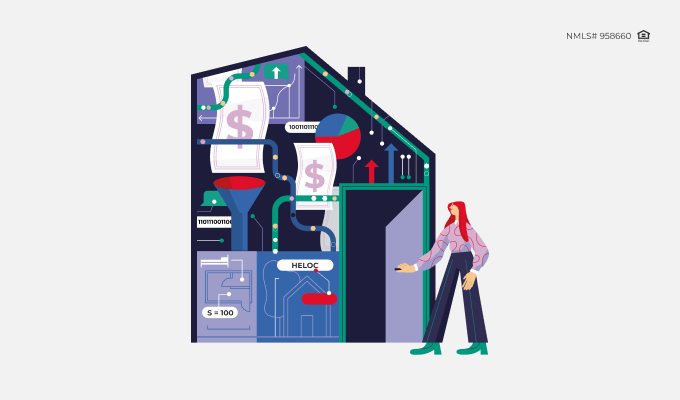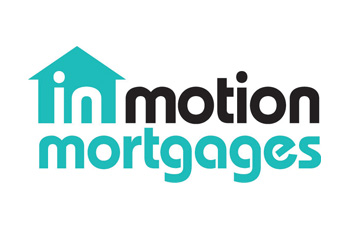Lasting Consequences of Equity Release Mortgages on Your Estate
Lasting Consequences of Equity Release Mortgages on Your Estate
Blog Article
Checking Out the Different Sorts Of Equity Release Mortgages Available Today
Equity Release mortgages existing numerous options for homeowners aged 55 and over. equity release mortgages. These monetary items deal with different requirements and preferences, allowing people to gain access to funds from their property. From life time home mortgages to common recognition mortgages, each kind uses unique benefits. Understanding these alternatives is vital for making educated decisions. What variables should one take into consideration when picking one of the most ideal equity Release plan? The details that follow might shed light on this vital topic
Recognizing Equity Release Mortgages
Equity Release home loans provide house owners, generally those aged 55 and over, with a means to access the worth bound in their home without needing to offer it. This monetary alternative allows people to convert a part of their home equity right into cash, which can be used for different purposes, such as home renovations, repaying financial debts, or financing retirement.Equity Release can take various types, but it basically entails borrowing versus the worth of the home while maintaining ownership. Property owners can choose to obtain a lump sum or a collection of smaller sized payments, depending upon their monetary requirements and preferences.Additionally, the quantity available for Release is influenced by the residential or commercial property's value, the homeowner's age, and certain loan provider criteria. On the whole, understanding equity Release home loans is essential for homeowners to make informed decisions regarding using their home's equity while taking into consideration the lasting effects.
Lifetime Mortgages
Lifetime mortgages stand for one of one of the most preferred kinds of equity Release. This economic product enables homeowners, normally aged 55 or older, to obtain versus the value of their home while retaining possession. The financing, which is safeguarded versus the home, builds up interest gradually however does not require monthly repayments. Rather, the financing and accrued passion are settled when the home owner dies or moves into long-lasting care.Lifetime home loans offer flexibility, as debtors can pick to obtain a round figure or choose a drawdown facility, accessing funds as required. Importantly, several strategies featured a no-negative-equity guarantee, making certain that borrowers will certainly never ever owe greater than the value of their home. This attribute gives assurance, permitting people to enjoy their retired life without the worry of depleting their estate. In general, life time mortgages serve as a practical option for those looking for financial backing in later life.
Home Reversion Plans

Drawdown Lifetime Mortgages
While lots of property owners look for ways to access their wealth, drawdown life time home mortgages offer an adaptable choice that permits individuals to Release funds slowly. This kind of equity Release mortgage allows homeowners to obtain versus the worth of their building while keeping ownership. Unlike typical lifetime home mortgages, drawdown strategies enable customers to access a portion of their equity upfront and take out added funds as needed, approximately a predetermined limit.This attribute can be specifically helpful for those who desire to manage their financial resources thoroughly, as it minimizes passion buildup by only charging rate of interest on the quantities drawn. Additionally, drawdown life time mortgages usually feature a "no adverse equity guarantee," ensuring that borrowers will certainly never owe greater than their home's worth. This alternative fits senior citizens who want economic security and flexibility, allowing them to satisfy unforeseen expenses or preserve their way of life without having to market their residential property.
Boosted Life Time Mortgages
Improved Life time Home loans use unique advantages for eligible home owners looking for to Release equity from their properties. Recognizing the eligibility standards is vital, as it identifies that can benefit from these specialized finances. Nevertheless, it is additionally essential to review the potential disadvantages related to improved options, ensuring an all-around perspective on their usage.
Eligibility Criteria Discussed
Recognizing the eligibility criteria for Improved Lifetime Mortgages is vital for potential candidates seeking to access the equity in their homes. Generally, candidates must be aged 55 or older, as this weblink age need is basic in the equity Release market. House owners must possess a residential property valued at a minimum threshold, which can vary by lending institution. Notably, the residential or commercial property must be their key residence and in good problem. Lenders commonly assess the house owner's health status, as certain wellness conditions might improve qualification and benefits. Furthermore, applicants ought to not have existing significant financial obligations safeguarded versus the residential or commercial property. Fulfilling these requirements allows individuals to discover Improved Lifetime Home mortgages as a feasible option for accessing funds bound in their homes.
Benefits of Boosted Home Mortgages
After making clear the eligibility requirements, it ends up being evident that Enhanced Life time Mortgages offer a number of significant advantages for homeowners wanting to take advantage of their residential or commercial property equity. Largely, they supply access to a bigger financing quantity compared to conventional lifetime home loans, benefiting those with health problems or age-related elements that raise their life span risk. This improved loaning ability enables house owners to satisfy different economic demands, such as home improvements or retirement expenditures. Furthermore, these mortgages commonly include adaptable payment options, enabling borrowers to manage their financial resources better. The no-negative-equity warranty further ensures that homeowners will certainly never owe greater than their home's worth, giving tranquility of mind. Generally, Enhanced Lifetime Mortgages present an engaging choice for qualified house owners looking for economic solutions.
Prospective Drawbacks Considered
While Enhanced Lifetime Mortgages supply countless benefits, potential disadvantages warrant careful factor to consider. One significant worry is the effect on inheritance; the equity released decreases the worth of the estate left to beneficiaries. Additionally, these mortgages can build up considerable rate of interest gradually, leading to a considerable debt that might surpass the initial financing amount. There might additionally be constraints on home modifications or rental, restricting property owners' flexibility. Boosted products commonly need specific health and wellness conditions, meaning not all home owners will certainly qualify. Managing the costs and costs associated with these mortgages can be complex, possibly leading to unexpected costs. Consequently, people must thoroughly evaluate their situation and get in touch with economic experts before proceeding.
Shared Appreciation Home Mortgages
Shared Gratitude Home mortgages represent a special financial setup that allows property owners to accessibility equity while sharing future home value raises with the loan provider. This technique supplies prospective benefits such as reduced month-to-month repayments, however it likewise features disadvantages that have to be very carefully taken into consideration. Comprehending the eligibility requirements is crucial for those curious about this choice.
Principle Introduction
Equity Release mortgages, especially in the type of shared appreciation mortgages, offer home owners a special economic remedy that permits them to accessibility funds by leveraging the value of their residential property. In this arrangement, a lender provides a finance to the property owner, which is commonly settled with a try this out share of the building's future gratitude in worth. This implies that when the home owner sells the home or dies, the loan provider receives a percent of the enhanced value, as opposed to just the preliminary car loan quantity. Shared recognition mortgages can be appealing for those seeking to supplement their revenue or financing substantial expenses while maintaining ownership of their home. Nevertheless, the economic effects of shared admiration have to be thoroughly taken into consideration by possible consumers.
Benefits and Downsides
Common gratitude mortgages can give substantial monetary advantages, they additionally come with significant drawbacks that prospective consumers need to consider. These mortgages permit property owners to accessibility equity in their properties while sharing a section of any future appreciation with the lender. This plan can be advantageous during times of climbing residential or commercial property worths, providing considerable funds without monthly payments. However, the main drawback is the potential loss of equity; property owners may wind up with significantly reduced inheritance for successors. Furthermore, the intricacy of the terms can result in misconceptions concerning payment commitments and the percentage of appreciation owed. It is essential for customers to evaluate these factors thoroughly before dedicating to a common recognition home mortgage.

Eligibility Needs
What criteria must homeowners fulfill to receive a shared recognition mortgage? Primarily, candidates must go to least 55 years old, ensuring they are within the target market for equity Release products. Furthermore, the property must be their main home and commonly valued over a defined minimum limit, commonly around ? 100,000. Lenders also evaluate the homeowner's monetary scenarios, consisting of revenue and outstanding financial debts, to ascertain they can manage the mortgage responsibly. Significantly, the building has to remain in excellent problem and free from significant lawful encumbrances. Home owners ought to additionally have a clear understanding of the terms, consisting of exactly how recognition will be shared with the lender upon sale or transfer of the property, as this influences general returns.
Selecting the Right Equity Release Option

Often Asked Questions
What Age Do I Need to Be for Equity Release?
The age requirement for equity Release commonly starts at 55 for the majority of plans. Some providers may use alternatives for those aged 60 and above, reflecting varying terms based on private circumstances and loan provider plans.
Will Equity Release Affect My Inheritance?
Equity Release can affect inheritance, as the quantity obtained plus interest decreases the estate's worth. Successors may obtain less than expected, relying on the residential or commercial property's recognition and the total debt at the time of passing.
Can I Move Residence With Equity Release?
The question of moving house with equity Release arises frequently. Normally, people can move their equity Release strategy to a new property, but details terms may use, requiring consultation with the lender for support.
Exist Costs Linked With Equity Release Mortgages?
Costs connected with equity Release home mortgages can consist of setup costs, evaluation costs, and lawful prices. In addition, there might be very early payment fees, which can impact the general price and economic effects for the debtor.
Just How Does Equity Release Impact My Tax Situation?
Equity Release can influence one's tax obligation scenario by possibly enhancing taxed revenue, as released funds are considered resources. It normally does not incur instant tax liabilities, making it necessary to speak with a financial consultant for personalized support.
Conclusion
In summary, the selection of equity Release home mortgages offered today supplies house owners aged 55 and over multiple pathways to access their building's worth - equity release mortgages. Whether going with a lifetime home loan, home reversion strategy, or other options, each alternative presents unique advantages tailored to private economic needs. Cautious consideration and consultation with a financial consultant are essential to ensure the selected equity Release remedy aligns with individual objectives and monetary circumstances, inevitably facilitating educated decision-making for a safe and secure economic future. Equity Release home mortgages present numerous alternatives for homeowners aged 55 and over. Equity Release mortgages provide house owners, usually those aged 55 and over, with a means to access the value connected up in their residential property without requiring to market it. Enhanced Lifetime Home mortgages use unique advantages for eligible property owners seeking to Release equity from their residential properties. Equity Release home mortgages, specifically in the kind of shared admiration home loans, offer property owners a distinct financial solution that permits them to gain access to funds by leveraging the worth of their residential property. In summary, the selection of equity Release home loans available today supplies home owners aged 55 and over several paths to access their property's worth
Report this page